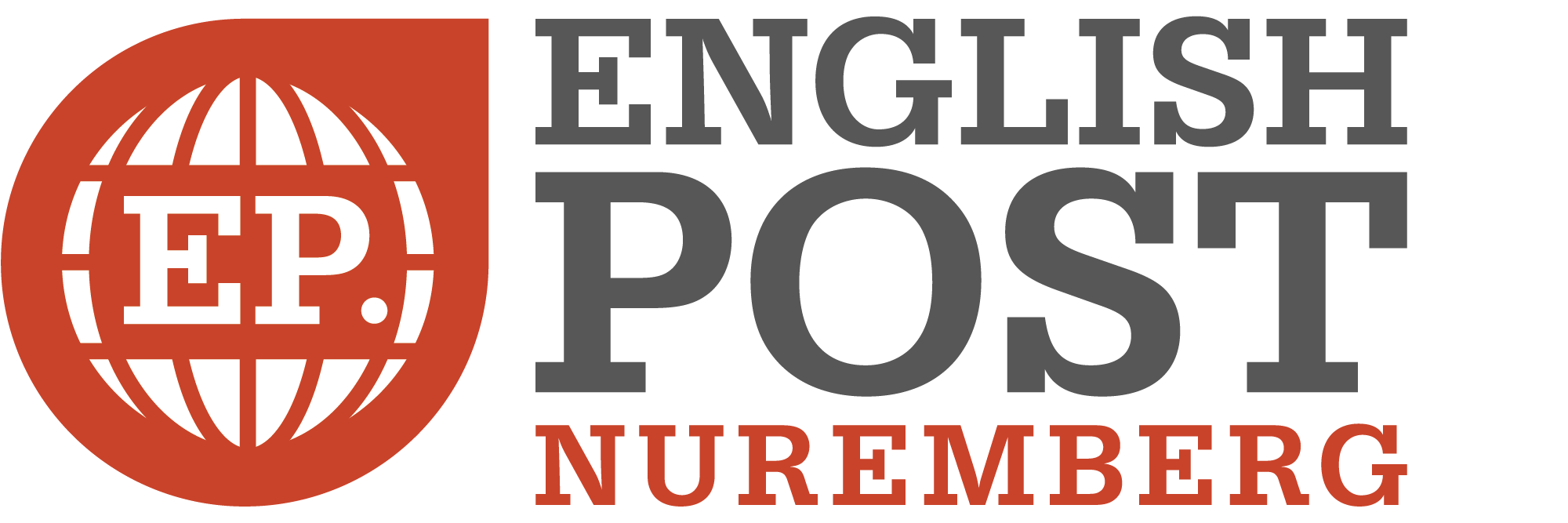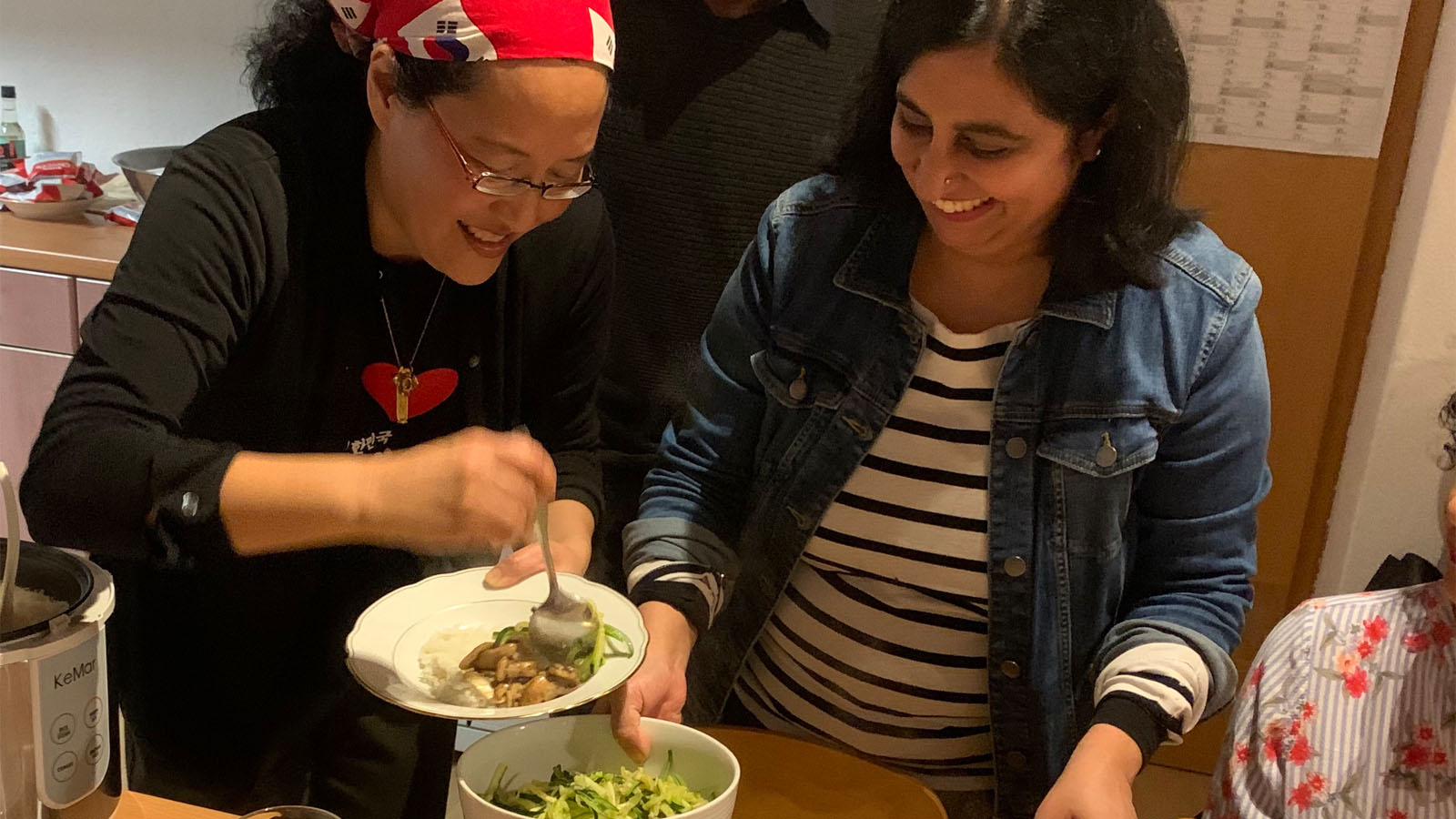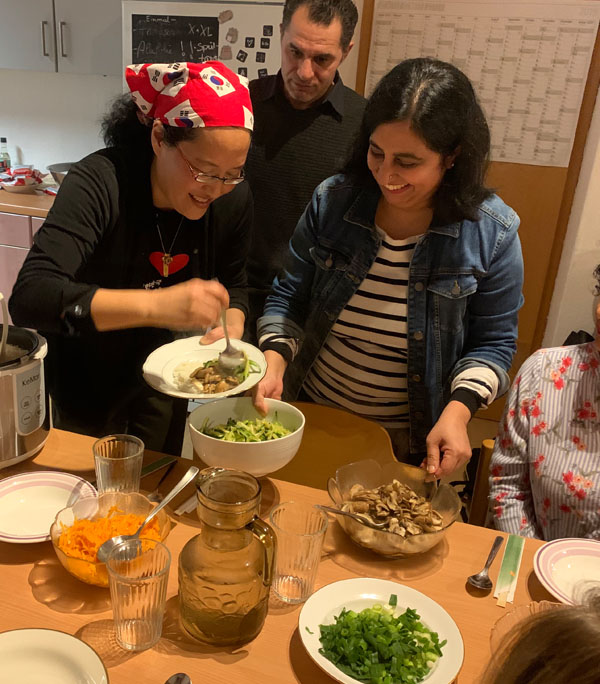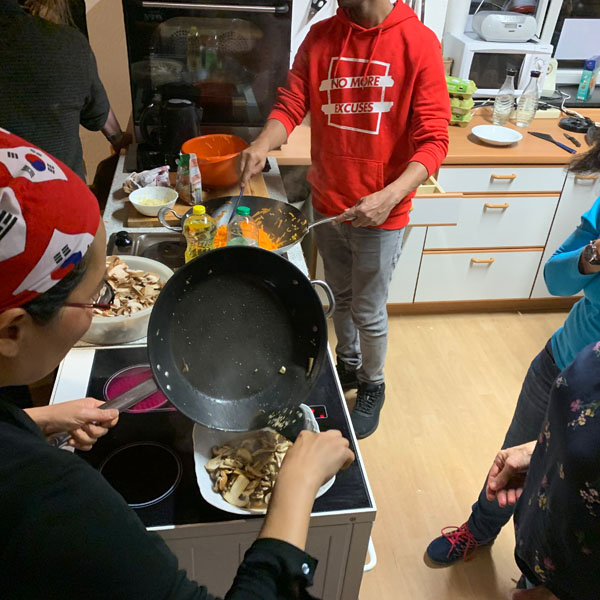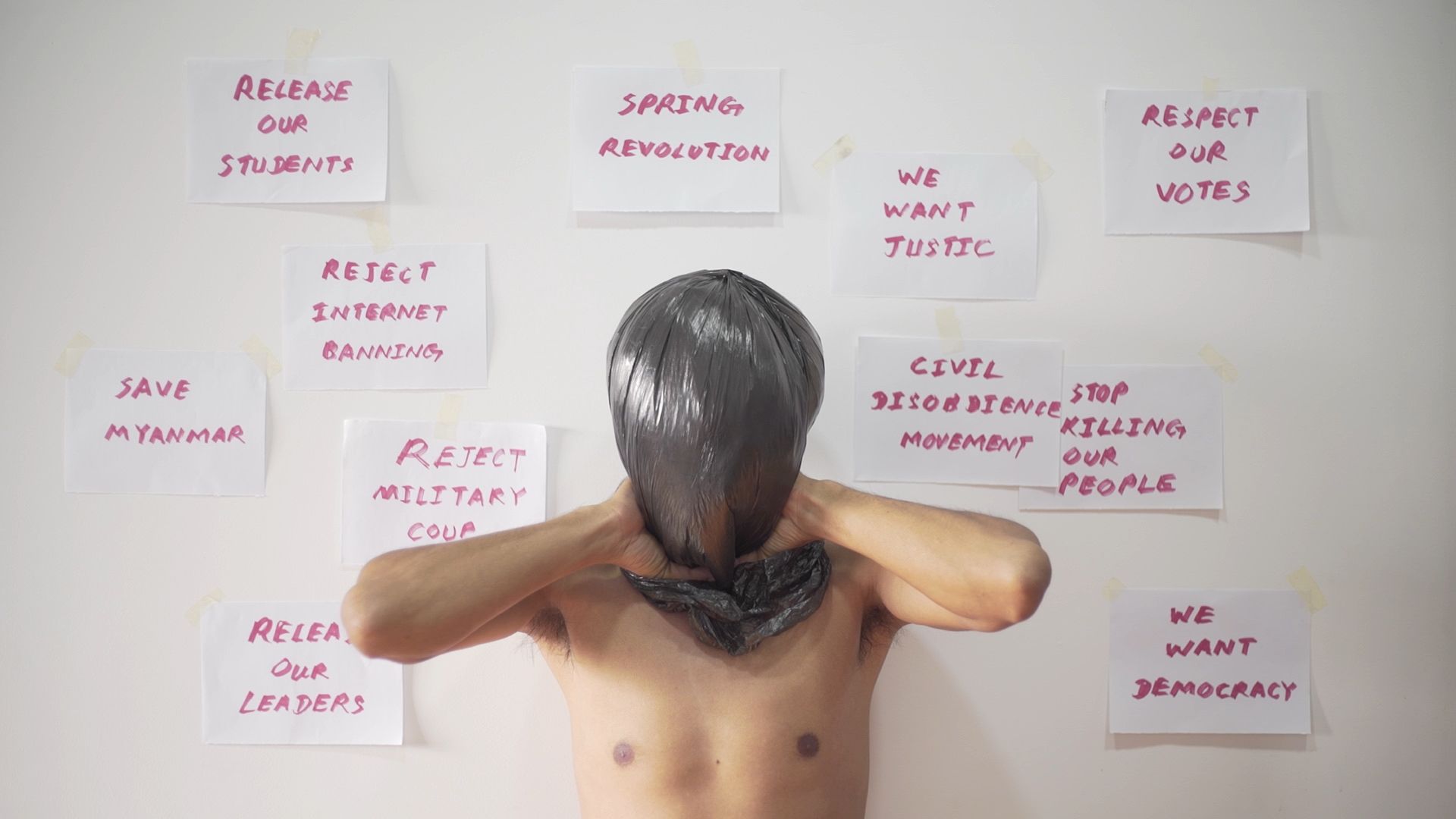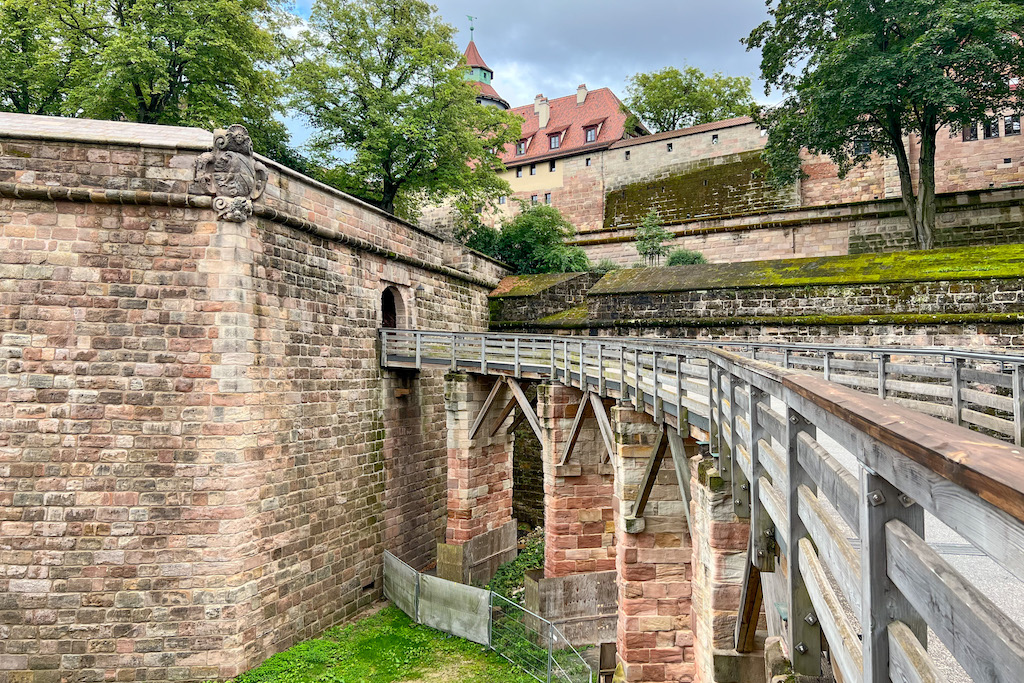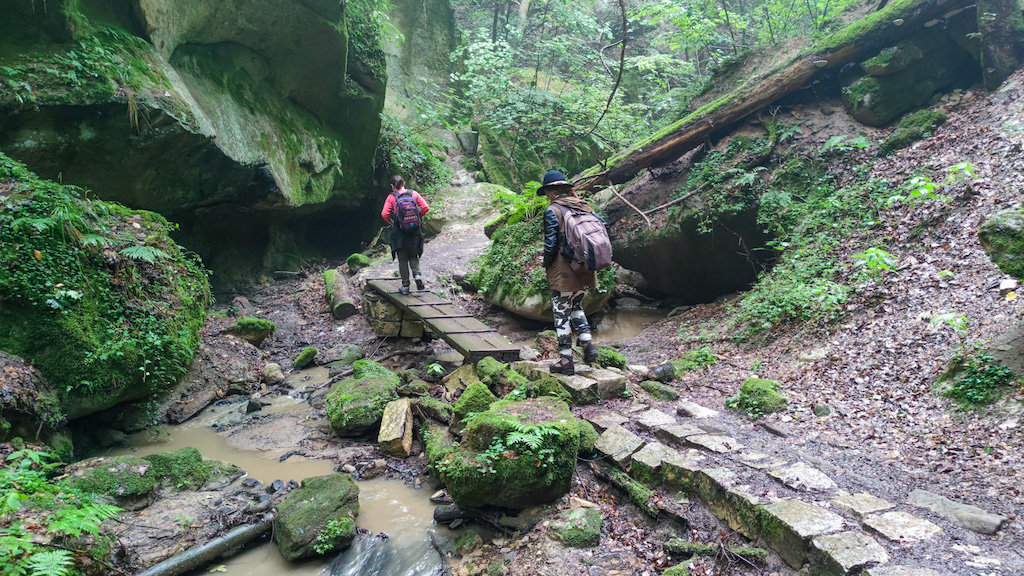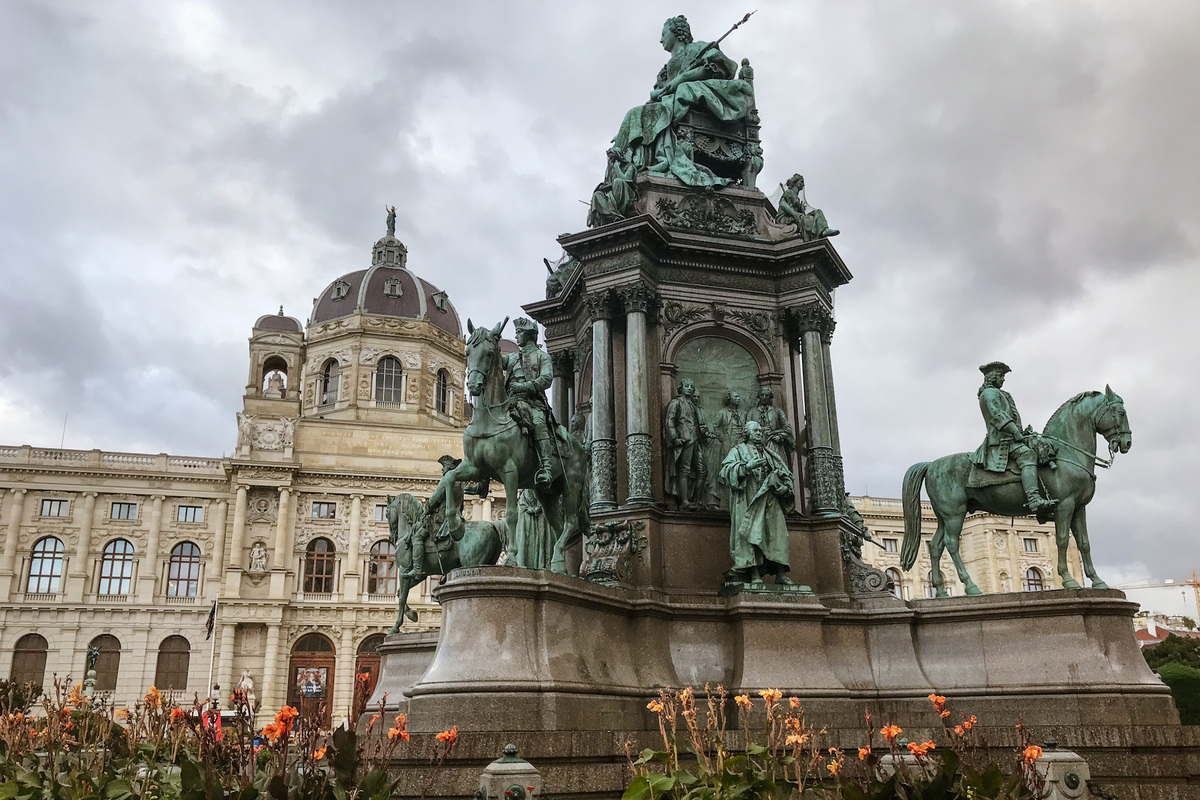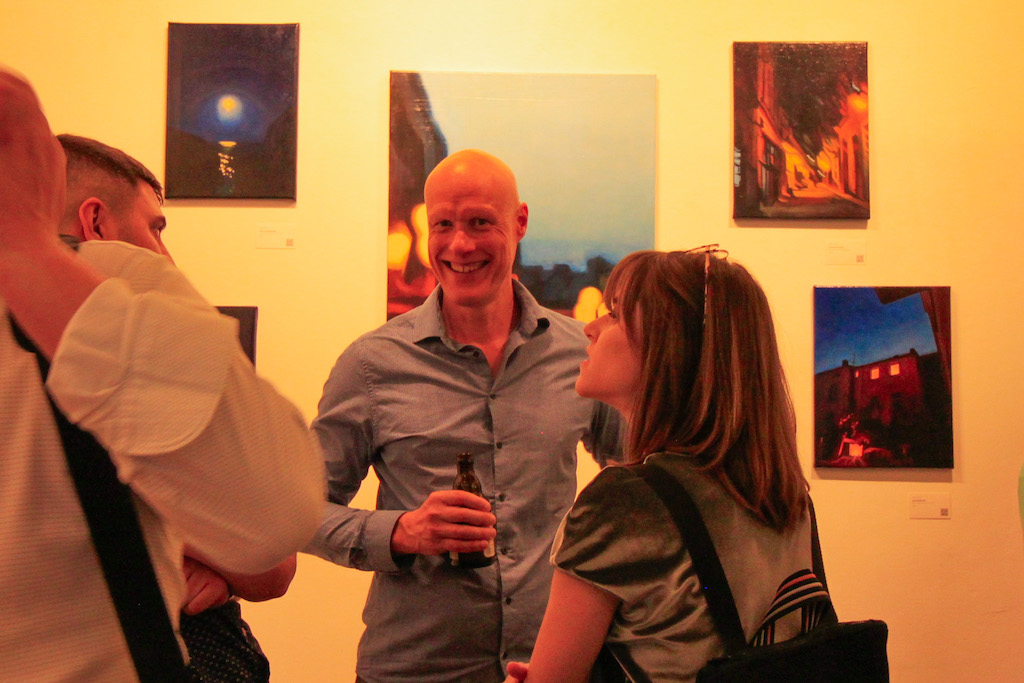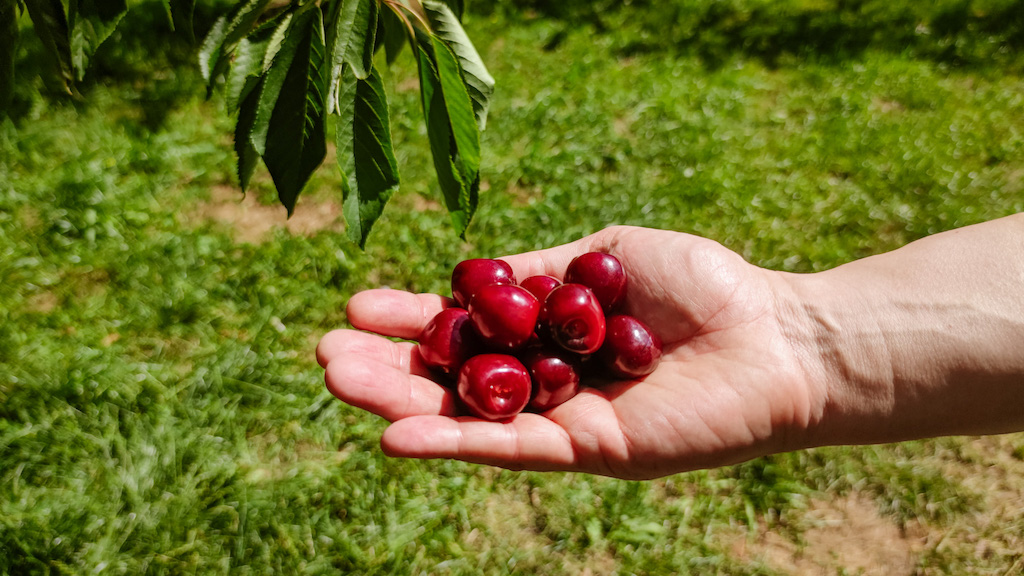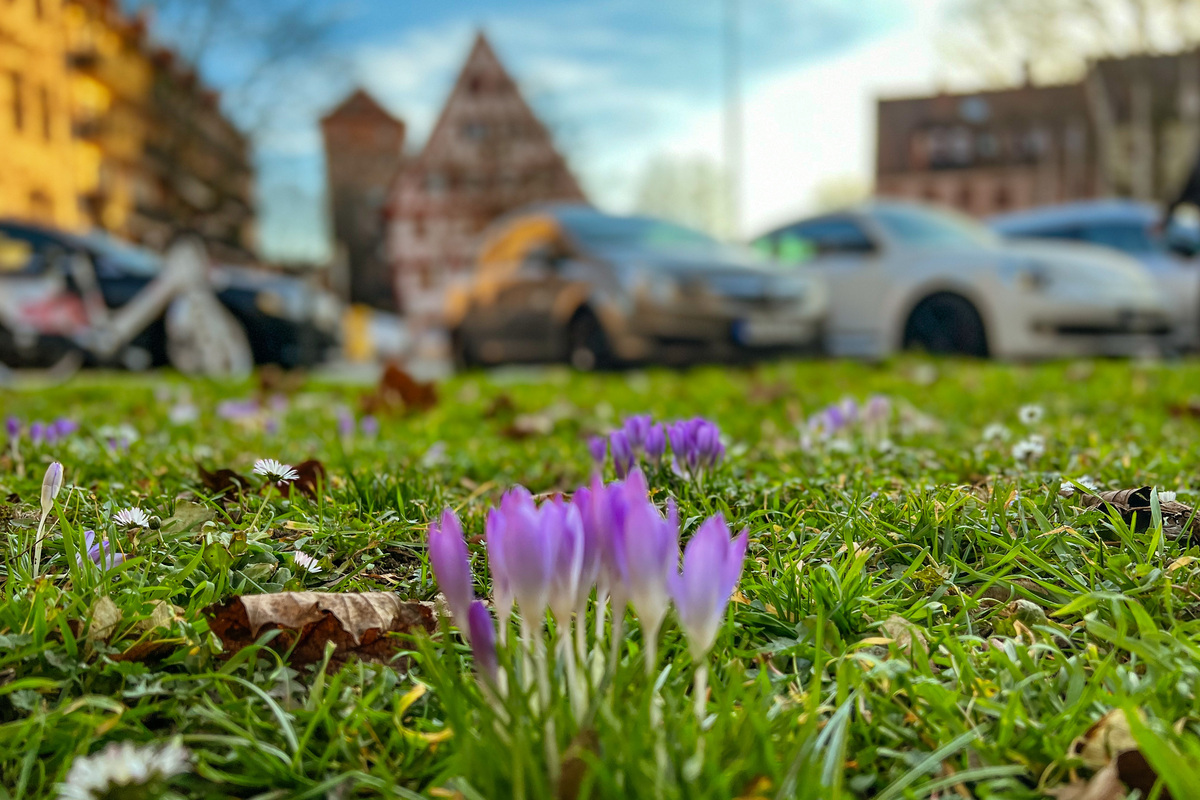A Korean American in Franconia:
What is it like to move to a new country when you are not so young and have a “Grass is Greener on the Other Side of the Ocean” outlook? Well, it was definitely not always greener on this side of the Atlantic ocean, but I am gradually learning to adjust to Germany by building connections through my culture, specifically through Korean food.
I am a Korean American who moved to Germany in 2019 with my German-English husband, two reluctant high school teens and a husky. It was one of the most challenging experiences of my life and a totally unpredictable rollercoaster ride. Due to my husband’s job and other reasons, we decided to move to the Erlangen-Nuremberg area and try living in Europe.
My husband and I met in the US over 20 years ago and we thought we would live in the States forever. However, in the past few years we started talking about possibly moving to a new place. We were becoming dissatisfied with the politics and lifestyle in the US. I also wanted to give my kids a new international experience. When I was a child, I lived in Vietnam and Kenya and moved to the US at the age of 12. I was eager to expose my family to Europe and a new country. However, I was a bit naïve and thought everything would be better than in the States. Well, not quite. I had major culture shock for the first six months! Our family has now been in the Nuremberg area for two and a half years, and slowly, our adjustment process has become less bumpy and easier overall.
One of the significant ways that helped me cope better with the grey weather, the outwardly unfriendly locals, and the complicated ways of German society, was to find like-minded people with whom I connected and who understood me. I was frustrated learning the difficult language, having stressful interactions at doctor’s appointments and getting lost in a web of bureaucracy! I was quite unhappy and diagnosed with depression after my first year here. Then the pandemic came and added another layer of stress.
Enough was enough. Instead of complaining, I decided to do something about it. I sought professional help and joined some community organizations. I volunteered with an American political organization via an American friend’s recommendation, joined the International Women’s Group of Franconia, through a German friend’s connection, and connected with a group supporting refugee issues. When I found the refugee support organization in Bamberg, Freund Statt Fremd e.V., I was over the moon, and just grateful to be with a warm and welcoming community. I asked if I could volunteer and do something. I could only speak basic German but the staff spoke great English and had no issues with my language barrier.
Since I was a cooking instructor in the US, I told them I wanted to host a Korean cooking class and dinner. One of the program staff, Renate, was excited and eagerly helped me organize the program. Somehow, it all came together and we successfully hosted this special program one winter evening. It was wonderful to see local community members come together and join my program. The locals were interested volunteers or active members who supported the organization’s mission to help refugees. An Indian friend also joined me to help cook, as well as some African and Middle Eastern refugee families. We talked about our different backgrounds and bonded over our love of international food. After the program came to an end in the evening, I felt inspired, accomplished and content. My perspective also changed gradually, and I thought to myself that I could manage in this country and that no matter how different we are, we somehow could connect through food, specifically Korean food.
As the pandemic continued, I offered an online course with the organization and it was my way of giving back to the community. To be honest, it was my way of feeling better about myself too. This volunteer experience made me focus on the positive aspects of my life. As my husband kept saying, I had to enjoy the moment, the now and the present, wherever I was.
As for my family, well, the teens are now better adjusted and have acquired a new global outlook being in Europe. My son is enjoying his first year at university in the Netherlands and meeting lots of students from around the world. My daughter was not happy when we moved here but she seems to have gradually changed her outlook. She will graduate from the Franconian International School this June and is planning to stay in Europe for a gap year program or university place.
Back in the States, I had volunteered with several educational and social justice groups. One of the community programs I helped with was called Tables Across Borders in Milwaukee, Wisconsin. One day, a friend who worked with refugee assistance asked me how we could support refugee women who wanted to cook and offer their cooking skills and food from their home country. I had a solution. I would ask local restaurant friends to help us. We were able to connect the women to local chefs who eagerly offered their restaurants to organize pop-up dinners around Milwaukee. It was a huge success and is still going strong! The pop-up dinners sold out quickly, raised awareness about refugee support issues, and many local Americans showed up to support the refugee chefs from Burma, Congo, Eritrea, Somalia, Serbia, and Syria.
In Germany, I want to keep bringing people together. I started teaching and offering more cooking classes at the Volkshochschule around Fürth and Nuremberg. I connected with a cultural center in Erlangen as well and hope to promote more programs to bring foreigners and Germans together. Furthermore, I restarted my small Kimchi food business, with the help of a German expat friend, Silvia, who made all the right connections for me and introduced me to a local German chef, Eddy Assmann. Eddy introduced me to a regional vegetable online store in the “Knoblauchsland” where I now sell my kimchi. I also found a supportive Franconian restaurant in Kraftshof where I process my Kimchi every week.
Culturally, Germans are very different from Americans. I kept focusing on the differences while I was adjusting. But I am quite sure that we all want to connect with one another. Thus, sharing food from my culture is truly the perfect way to build bridges and connections, regardless of how green the grass is, or not, on the other side of the ocean!
You can follow Saehee Chang on Facebook or Instagram
If you are living in Nuremberg Germany, you can buy her Komichi here: Knoblauchsland Gemüse
